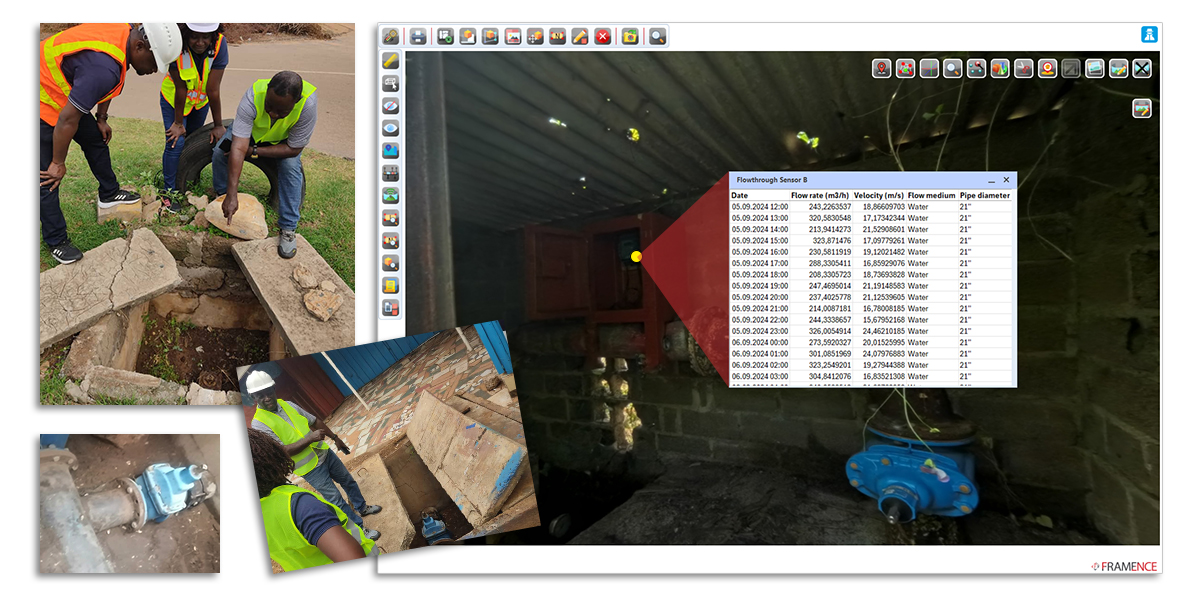In northern Ghana, farmers face daily challenges due to water scarcity. Droughts, intensified by climate change, make water an invaluable resource. However, up to 50% of the water transported through Ghana’s pipelines is lost—either due to corroded pipes or illegal water abstraction. This issue has serious consequences for local communities, leading to food insecurity, economic difficulties, and challenges in irrigating fields. The vast network of pipelines further complicates early leak detection, as maintenance staff must manually inspect them on-site for corrosion damage.
A lighthouse project in Ghana
To tackle this problem, the “Digital Twin for Conservation” project was launched in 2024. In collaboration with a local company, we developed a solution as part of this EU-funded pilot project to monitor water flow through pipelines and accurately detect irregularities. Using our photorealistic digital twins, we digitally recreated a portion of Ghana’s water pipe infrastructure, making inspection significantly easier.
At the same time, sensors were installed at various points along the pipelines. These sensors were manually read and provided data on water flow, which was then integrated into Framence’s digital twin. By analyzing the collected data and identifying unusual flow values, leaks could be precisely located, as the sensors were linked to GPS coordinates within the digital twin. This allowed maintenance teams to pinpoint inefficient areas and leaks without conducting time-consuming inspections along the entire pipeline.
One additional feature—real-time notifications of unusually low water flow—could not be implemented due to the lack of internet infrastructure in the project regions. Nevertheless, the project demonstrates how digital twins could be utilized in regions with stable internet access to further optimize processes in the future.
Both we and our local partner gained valuable insights from this project that can be applied not only in Ghana but also in other regions facing similar challenges. If Ghana’s state water supply company, Ghana Water Ltd, adopts and scales up this pilot project, countless communities could benefit from a more reliable water supply for both irrigation and daily needs.
For more information about the project, contact us via our contact form.


